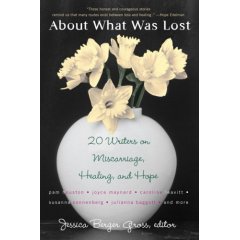31 Hours by Masha Hamilton

Masha Hamilton’s gripping new novel, 31 Hours, tells the story of a young man, Jonas, who is smart and sensitive, worried about the world and wanting to make a difference. He reminds me of someone one of my sons could grow into someday, someone I would want them to grow into someday. Except for this: Jonas falls under the influence of a man named Masoud who convinces him to participate in an act of terrorism.
Jonas’ is just one of the storylines in the novel, which introduces us to three families: Sonny Hirt, a subway panhandler, and his sister; Jonas and his long-divorced parents; his girlfriend Kit, her much younger sister Mara, and their newly-separated parents. They are all pretty regular folks traveling a Manhattan and Brooklyn landscape that is quite familiar (and more familiar to me than the settings of Hamilton’s earlier, terrific, novels like The Camel Bookmobile or The Distance Between Us). Jonas’ story draws the other families closer, like a dangling thread which, when pulled, tugs the others inexorably tighter. I read with an increasing sense of urgency as the clock ticked down the thirty-one hours to the story’s climax.
The story is told in shifting narrative voices, allowing the reader into a variety of different perspectives on the events. I found myself feeling most for Carol, Jonas’ mom, whose sense that her son is in trouble opens the novel, but I can’t stop thinking about this passage from the ‘tween, Mara, who is suffering quietly through her parents’ separation, hearing her mom cry behind closed doors every day, and wants only to bring her parents back together. Hamilton writes:
It had been left to Mara to rescue her mother. No one else seemed to realize the seriousness of the situation. Mara was reminded of a movie she’d waatched once… The title had long since slipped from her memory, but what she did recall was that a ship went down and two women found themselves in a lifeboat with nothing to eat or drink. They floated alone at sea. At first there were jokes, or attempts at jokes, and then singing, and finally the sharin gof secrets that altered the way the two women felt about each other an themselves. But as their situation became increasingly desperate, much of the talking ended. One woman finally succumbed to thirst and, though her companion begged her not to, began frantically gulping seawater cupped in her hands. And that drove her mad. It caused sodium toxicity–Mara looked it up afterward–which resulted in a shrinkage of brain cells, which in turn resulted in confusion. The woman, now crazed, jumped into the ocean thinking she was walking into the kitchen in her own home to get a snack. She drowned. The audience was meant to weep for her. But Mara cried for the woman left behind, sane still but alone, floating on the vast sea. Mara felt as if her mother had become the dehydrated woman guzzling saltwater, and Mara was in danger of being abandoned at sea.
The lines keep resonating for me, as I think about what’s worse: to be the one who becomes quietly unhinged and dies (but who is protected, by madness, from fear of death); or to be the one left behind, “sane still but alone.” And as I was reading, I pulled myself out of the novel’s spell occasionally to force myself to consider this, and to wonder how I wanted the book to end. I couldn’t decide. Hamilton’s conclusion is absolutely uncompromising, somehow both shocking and satisfying.





